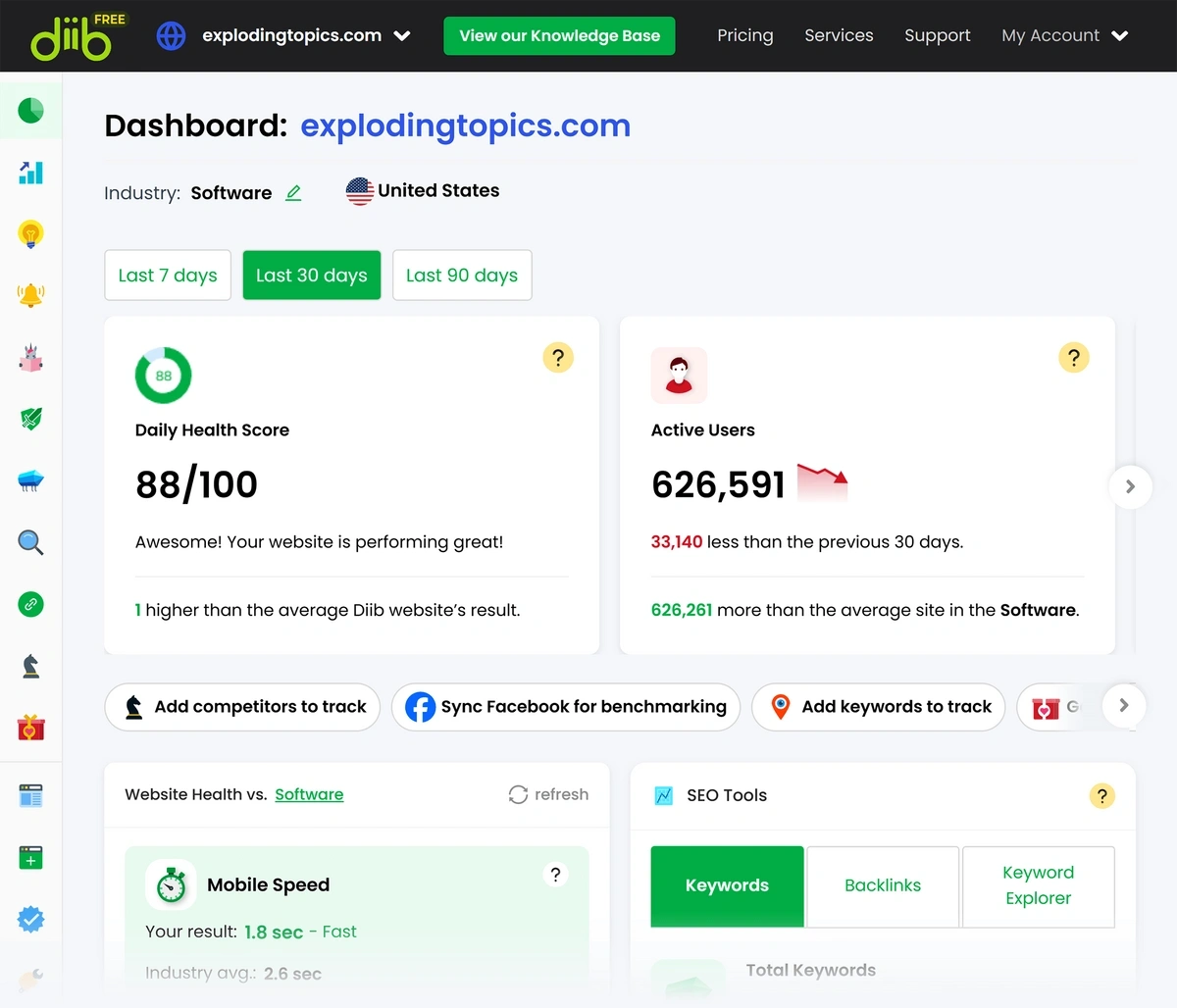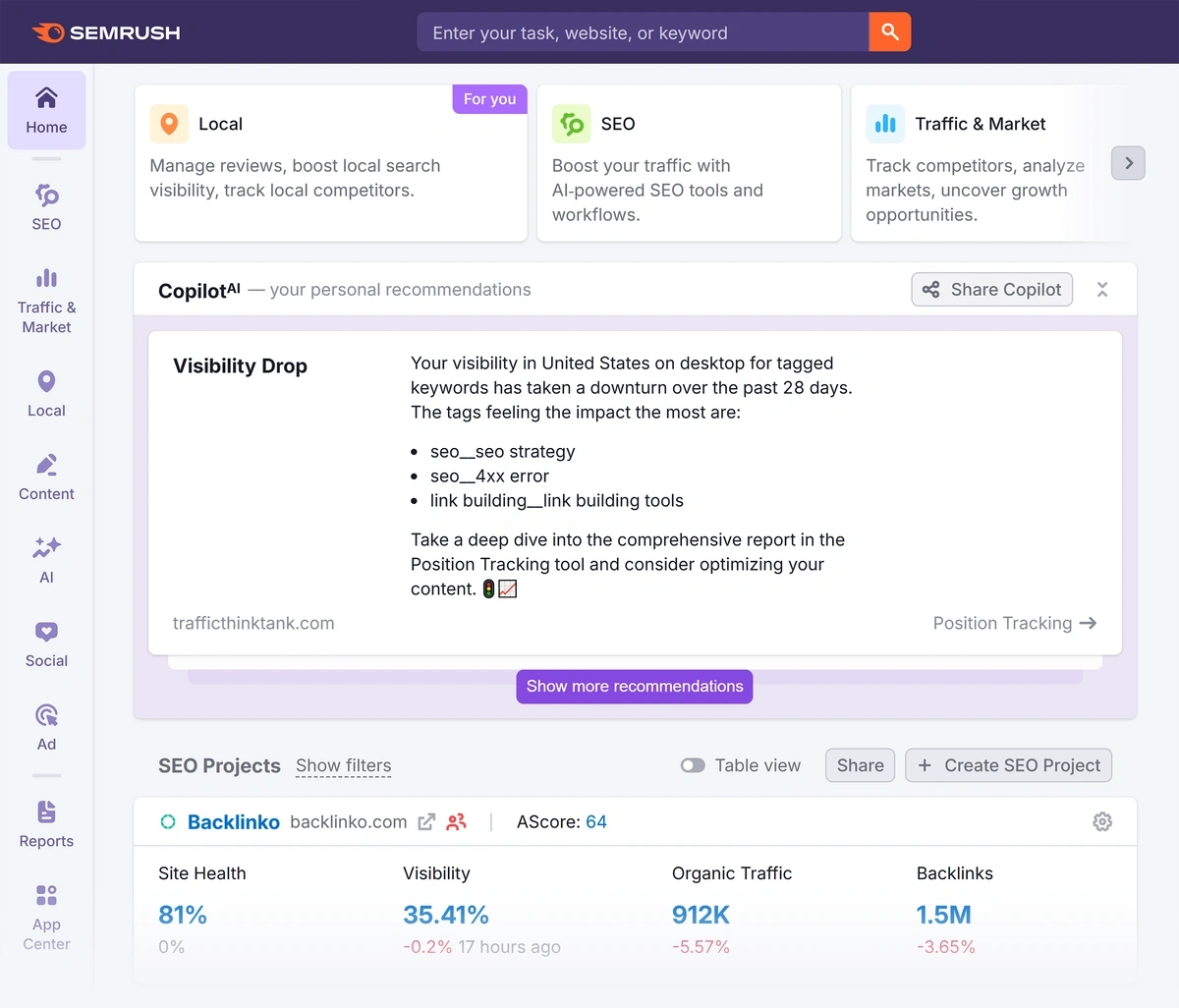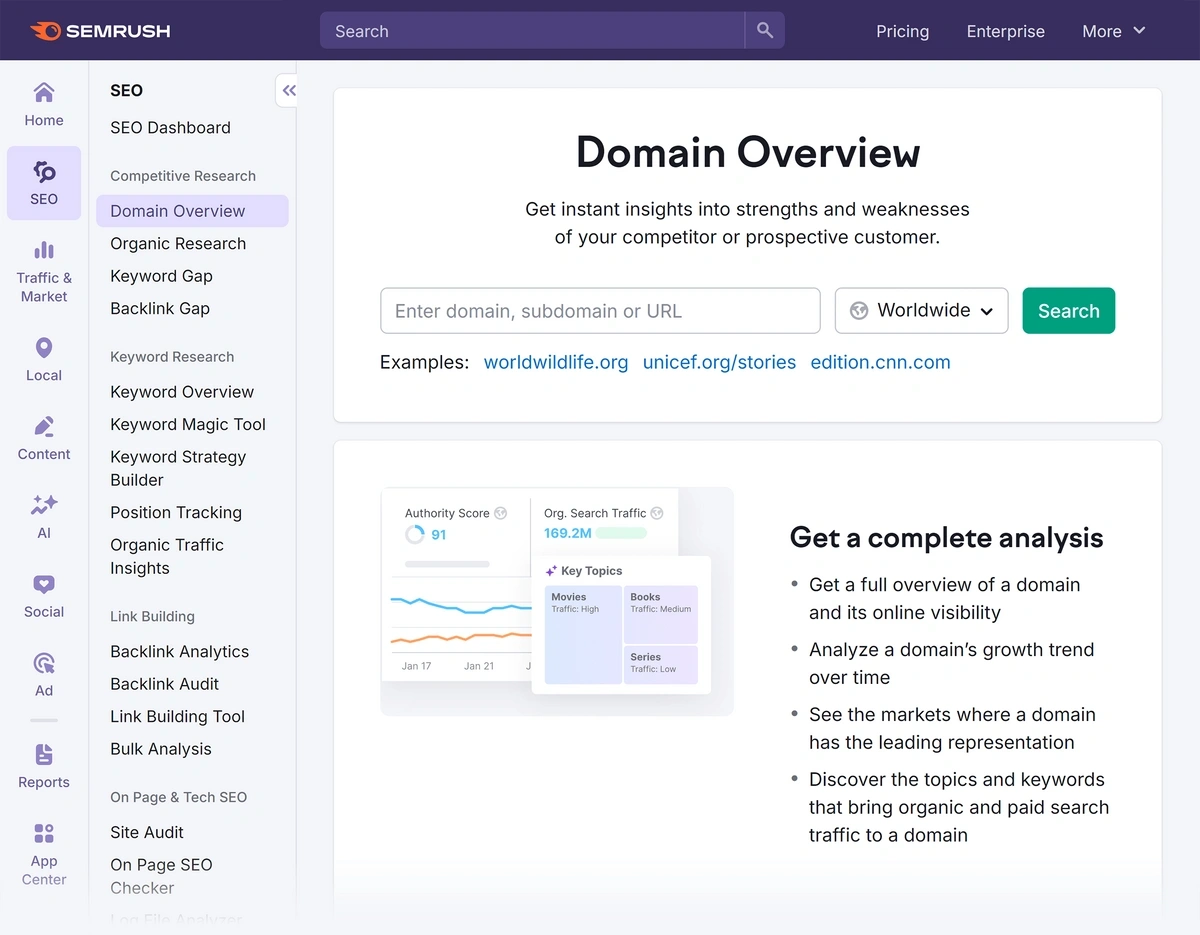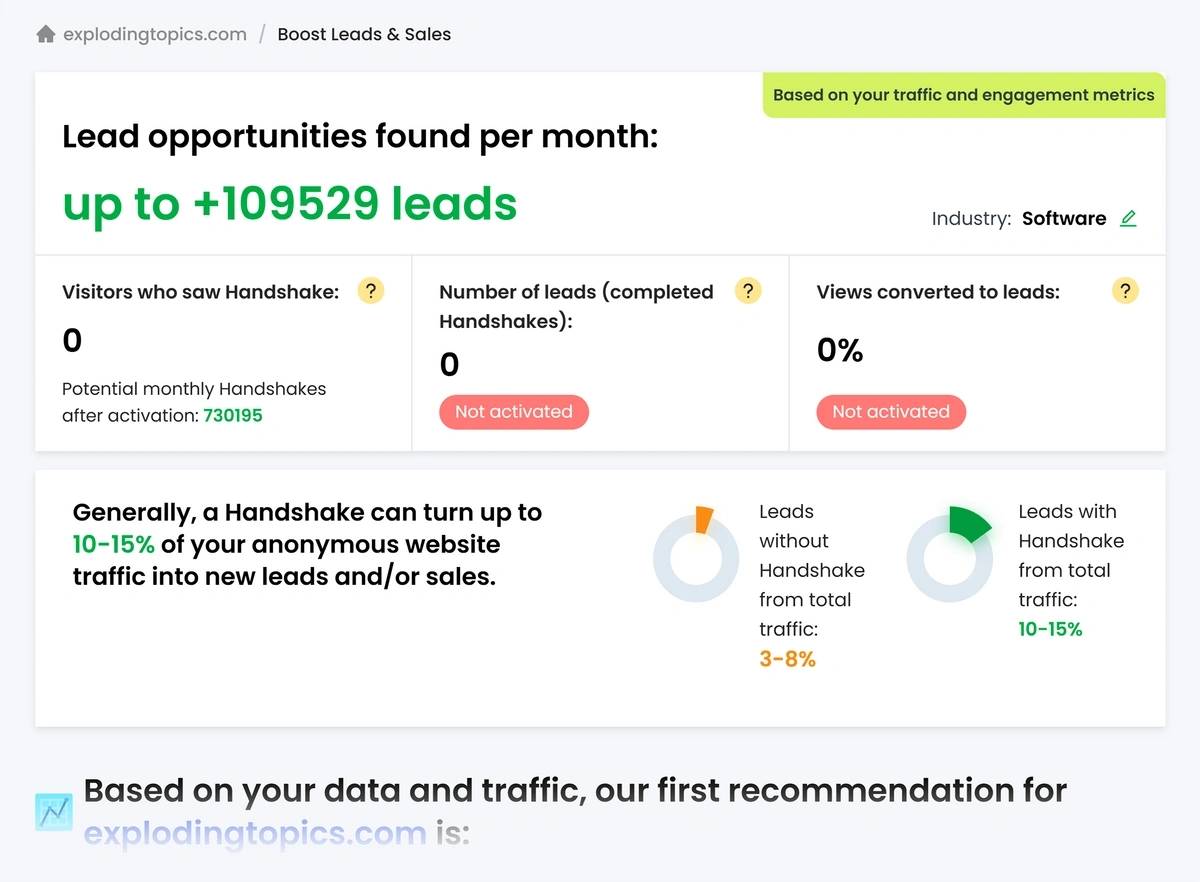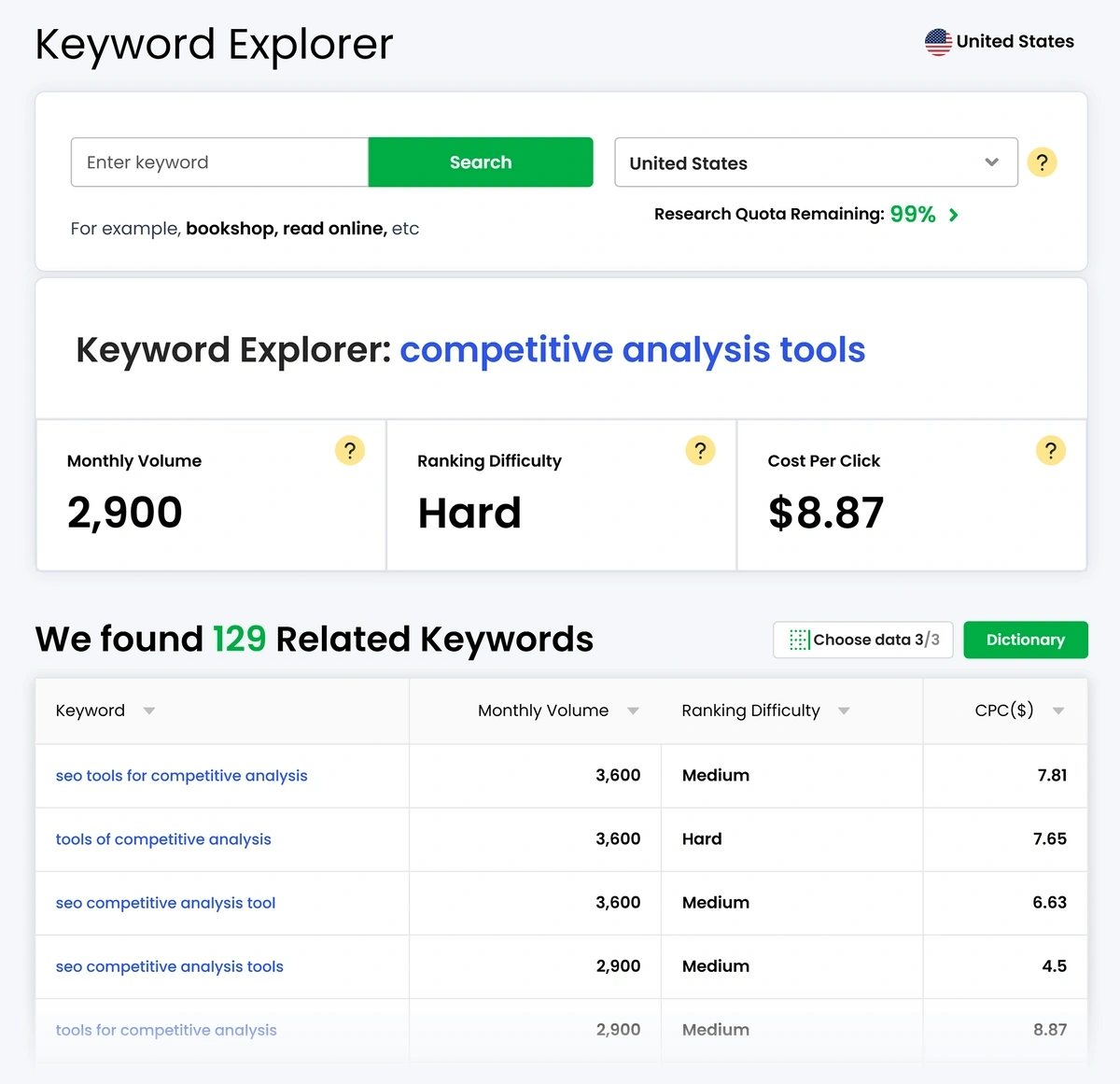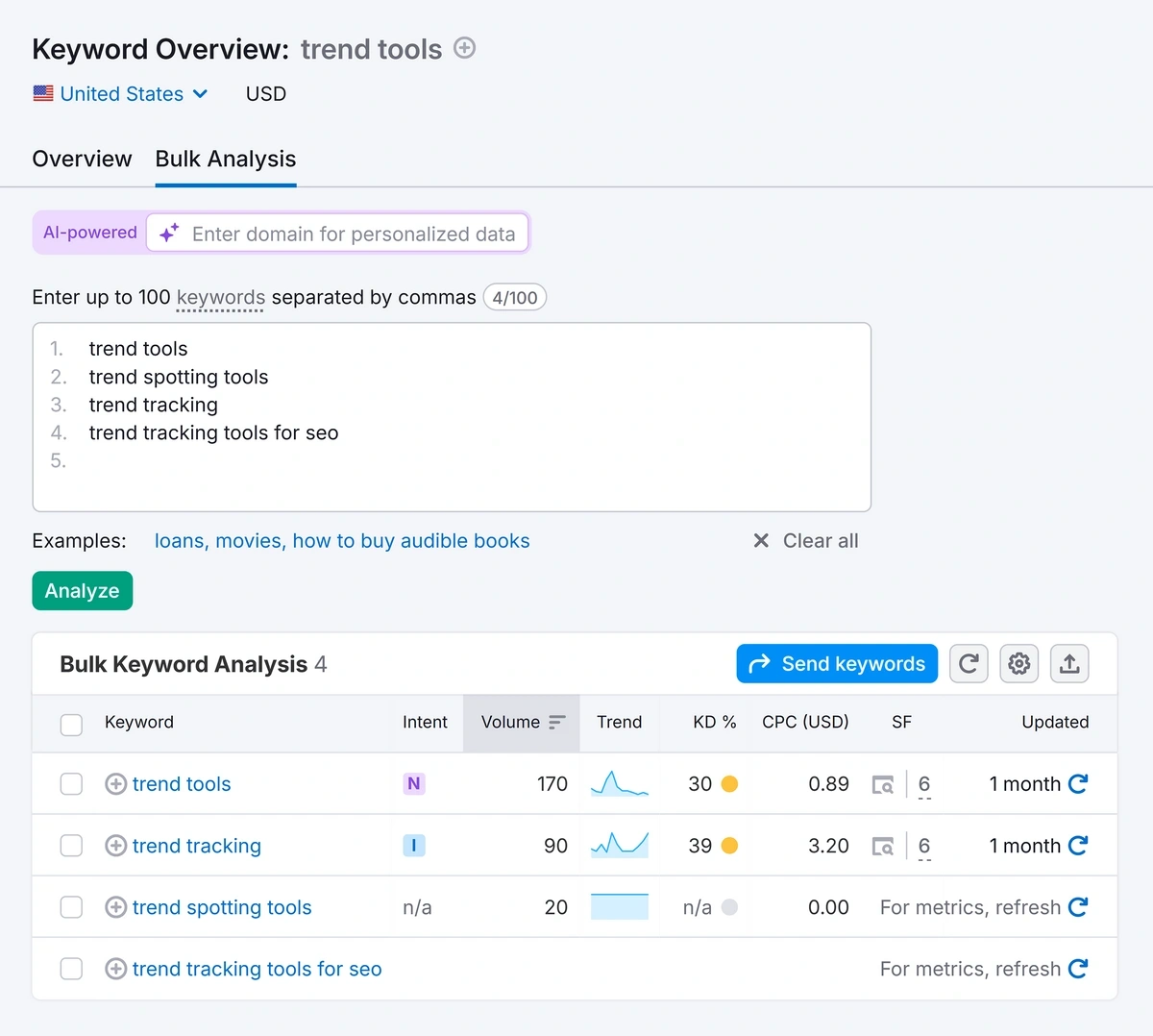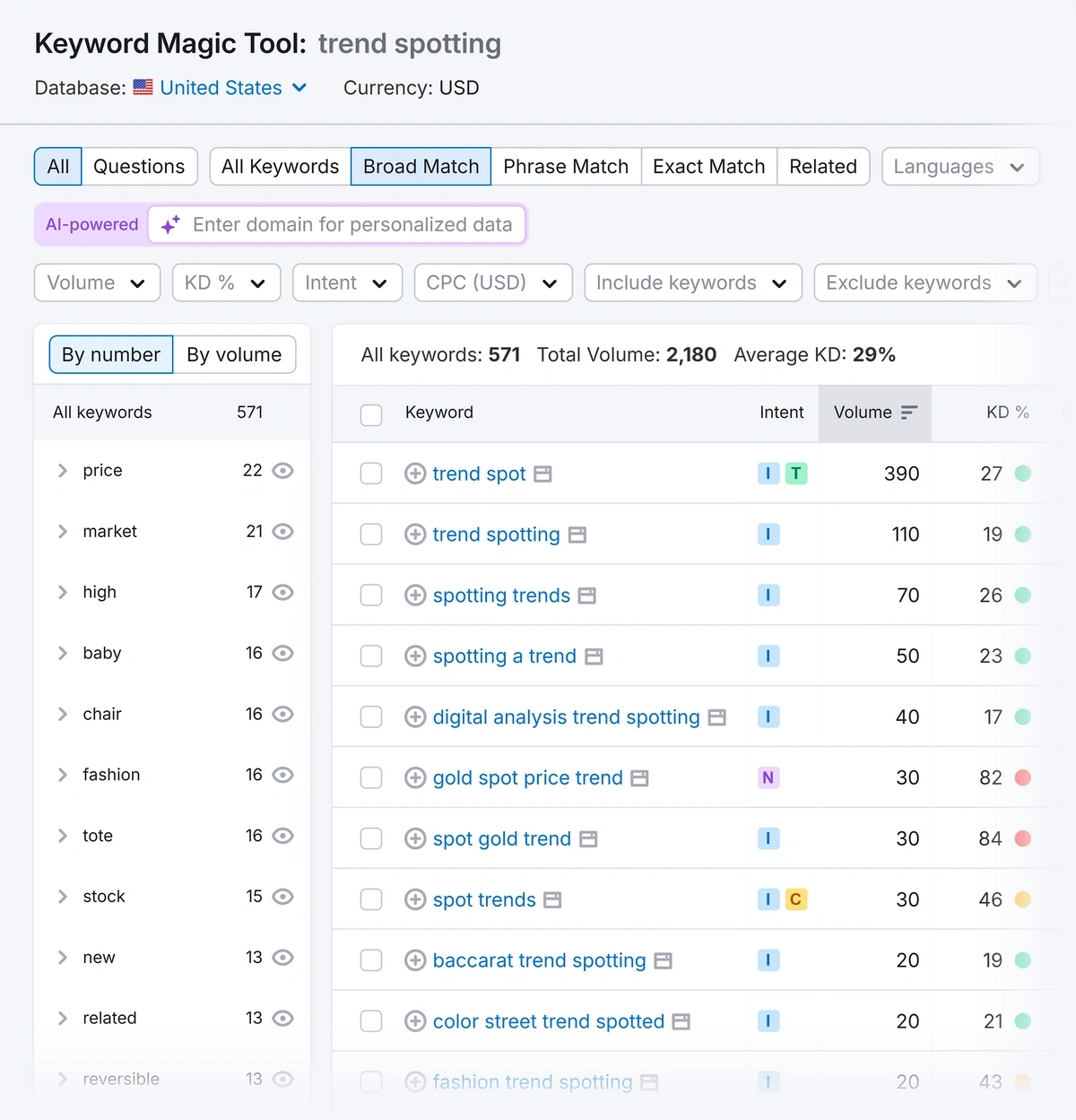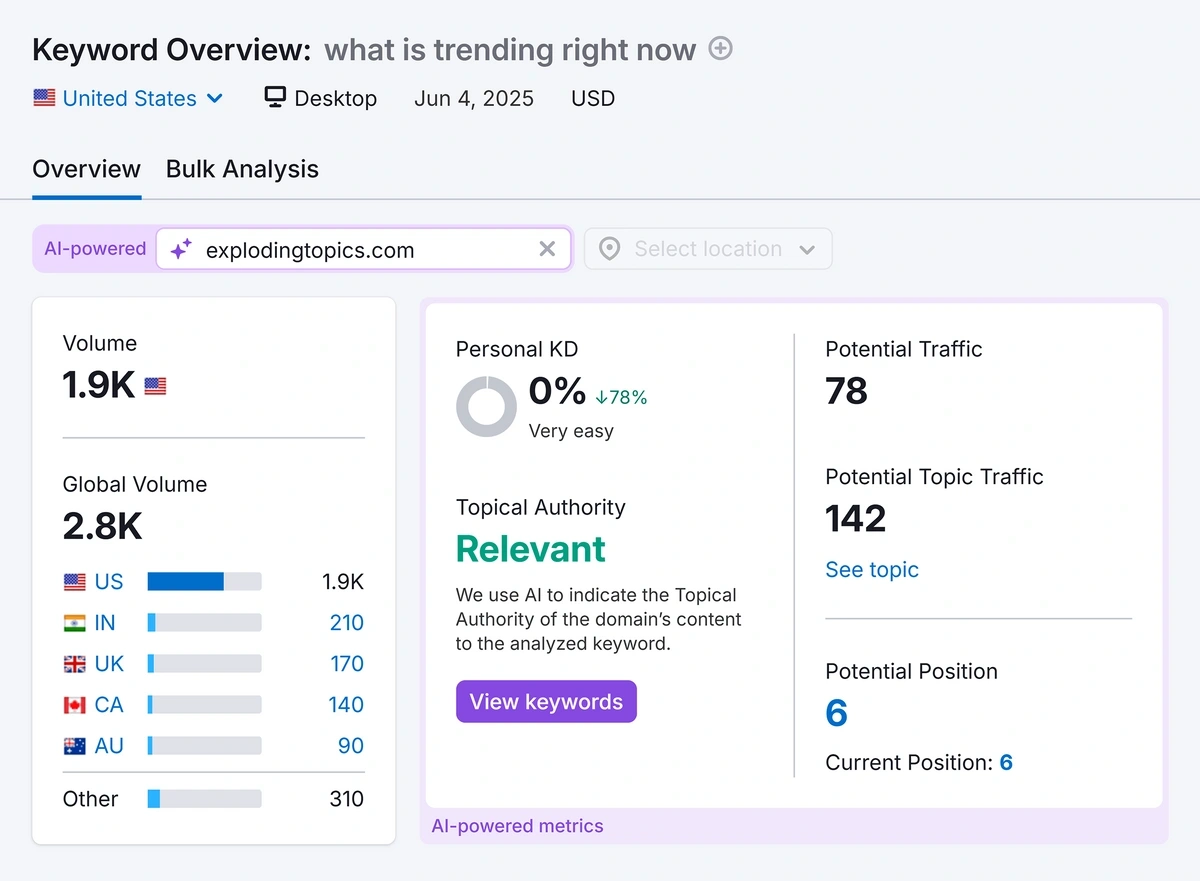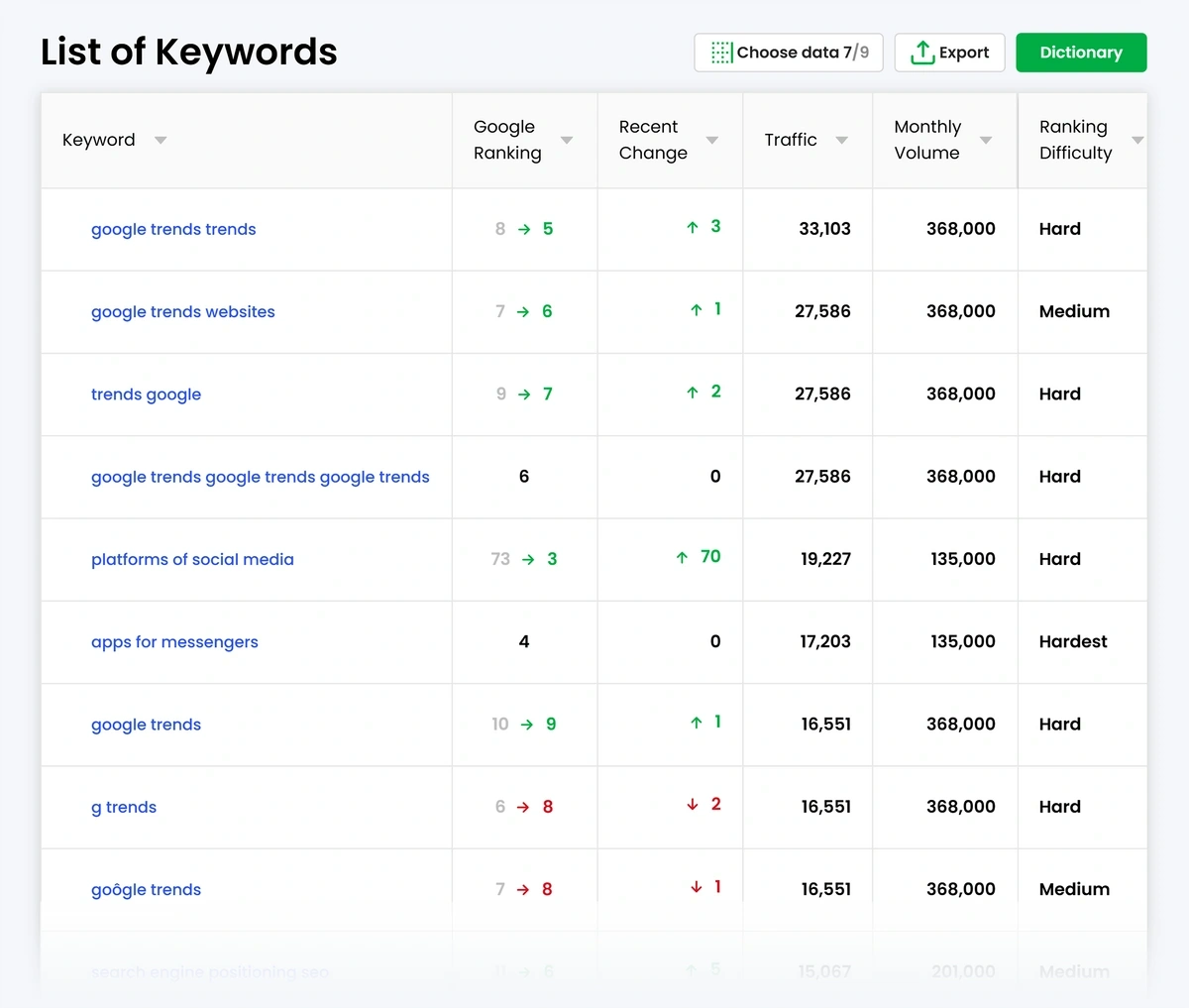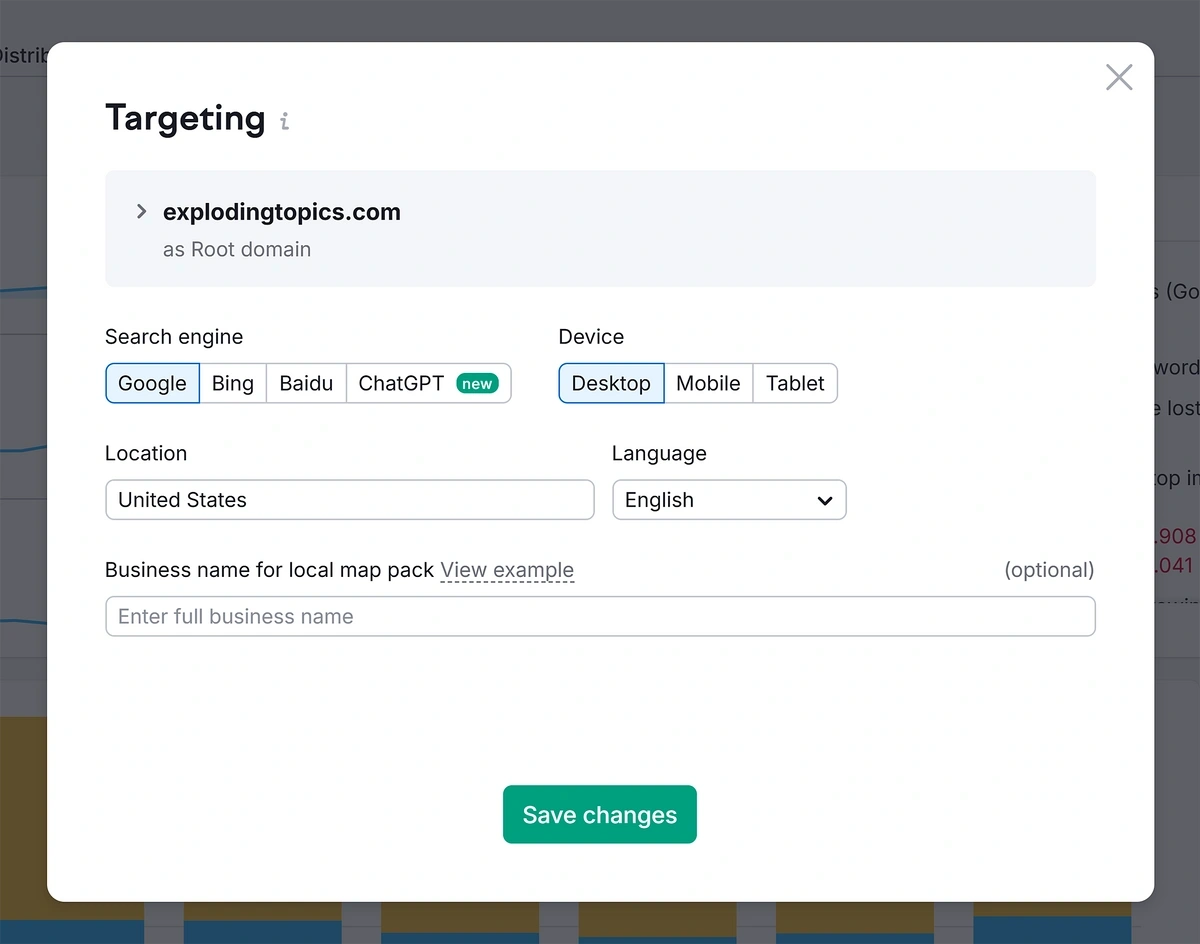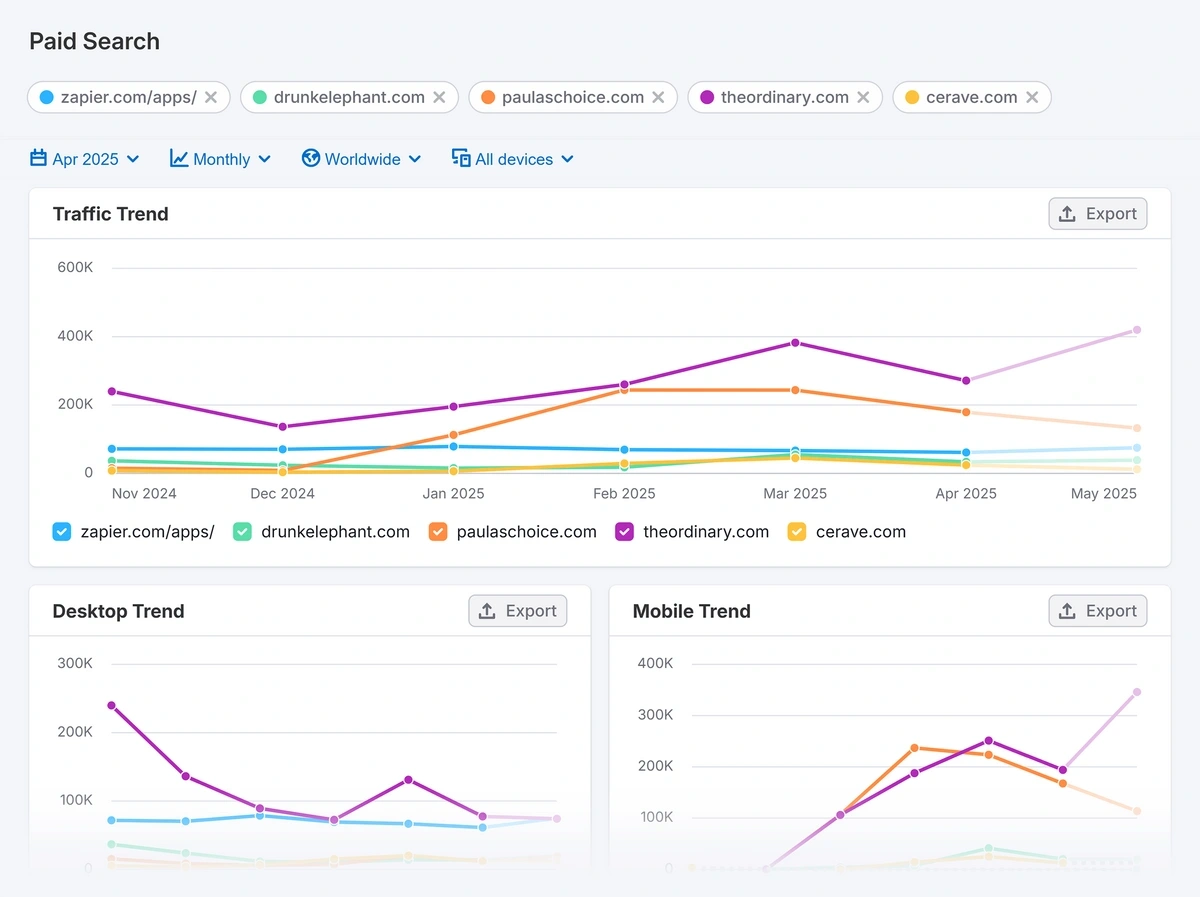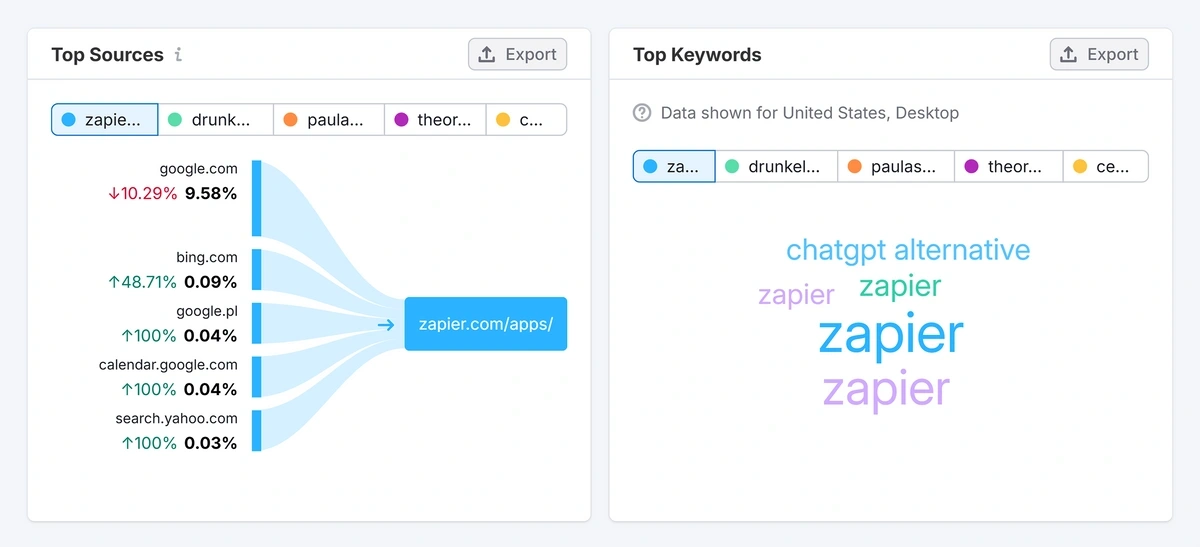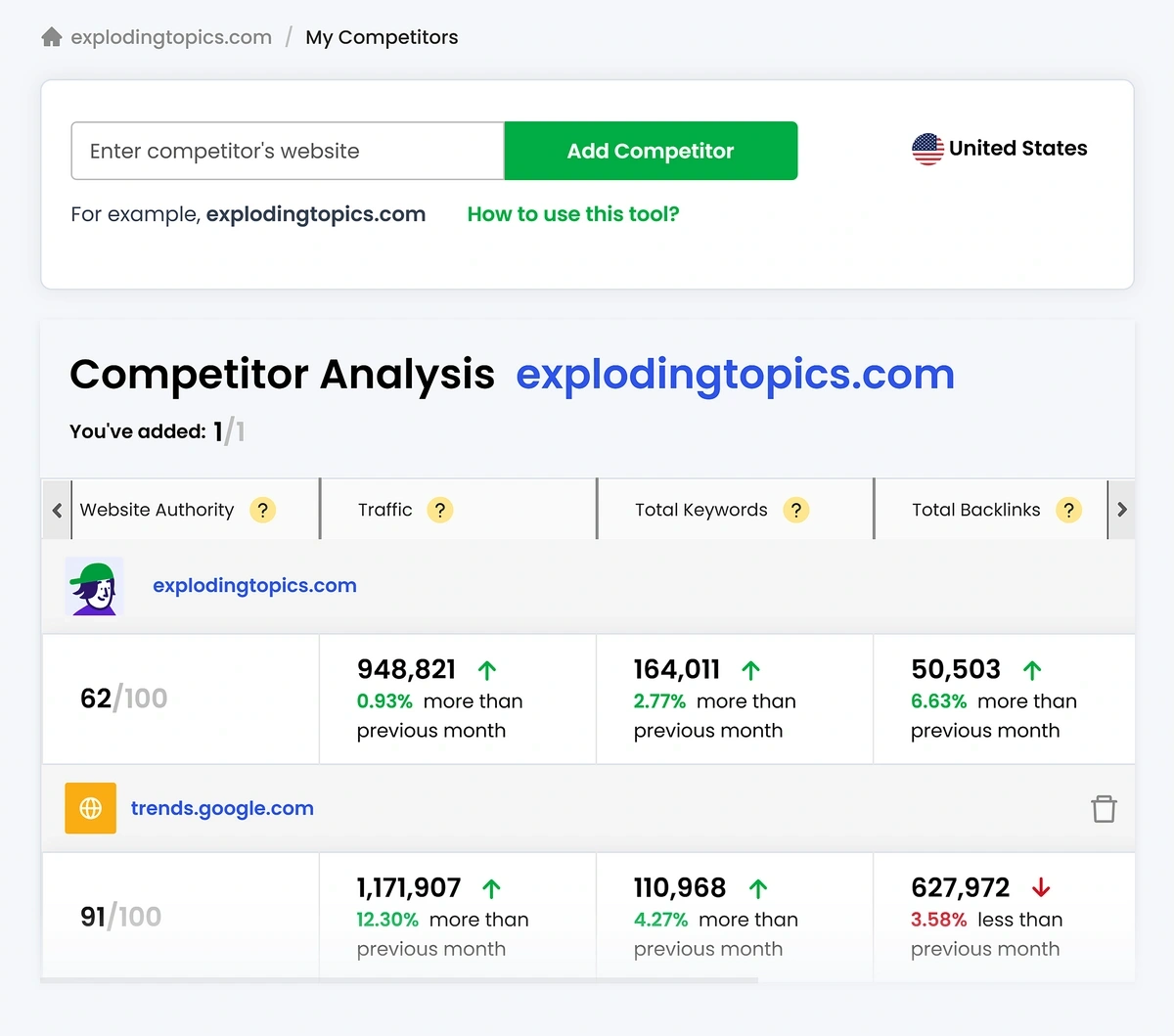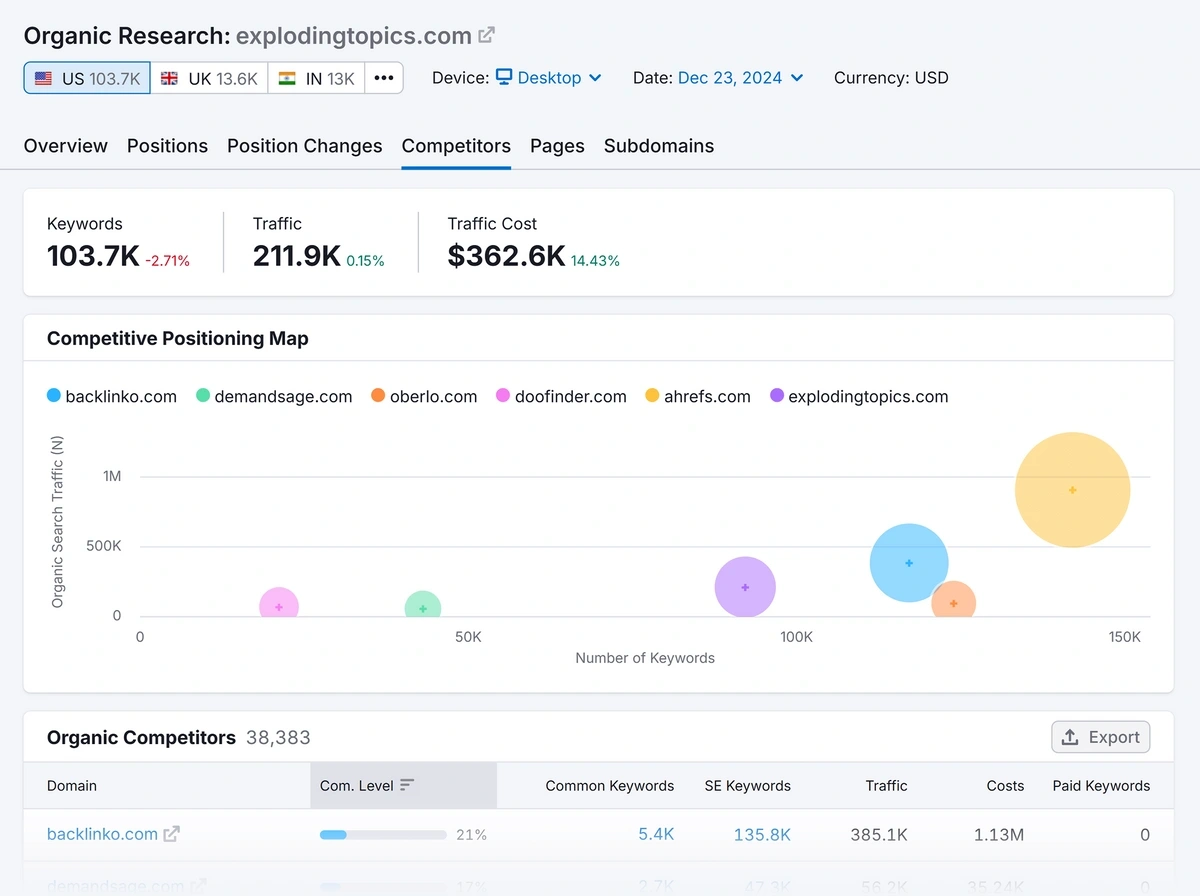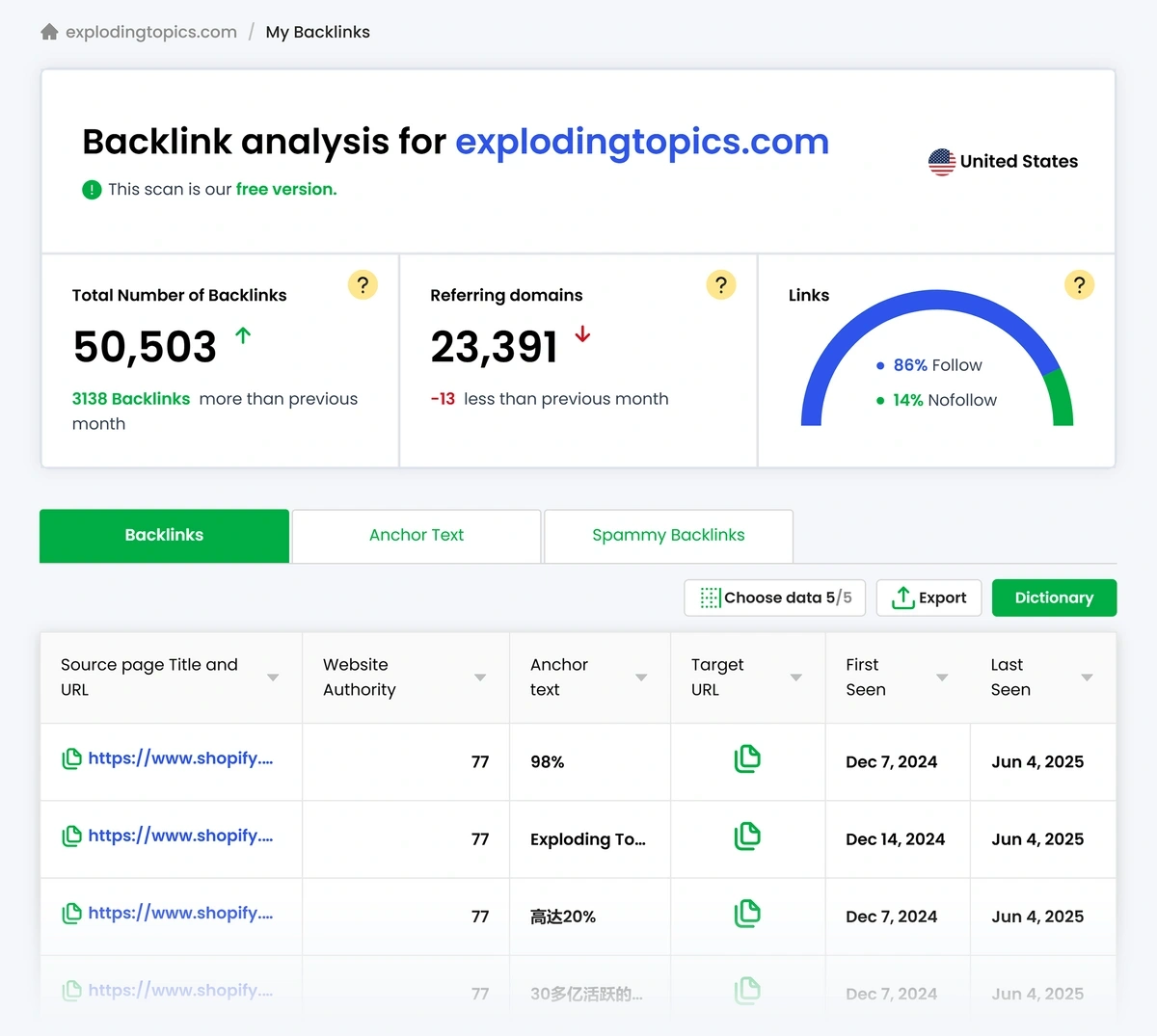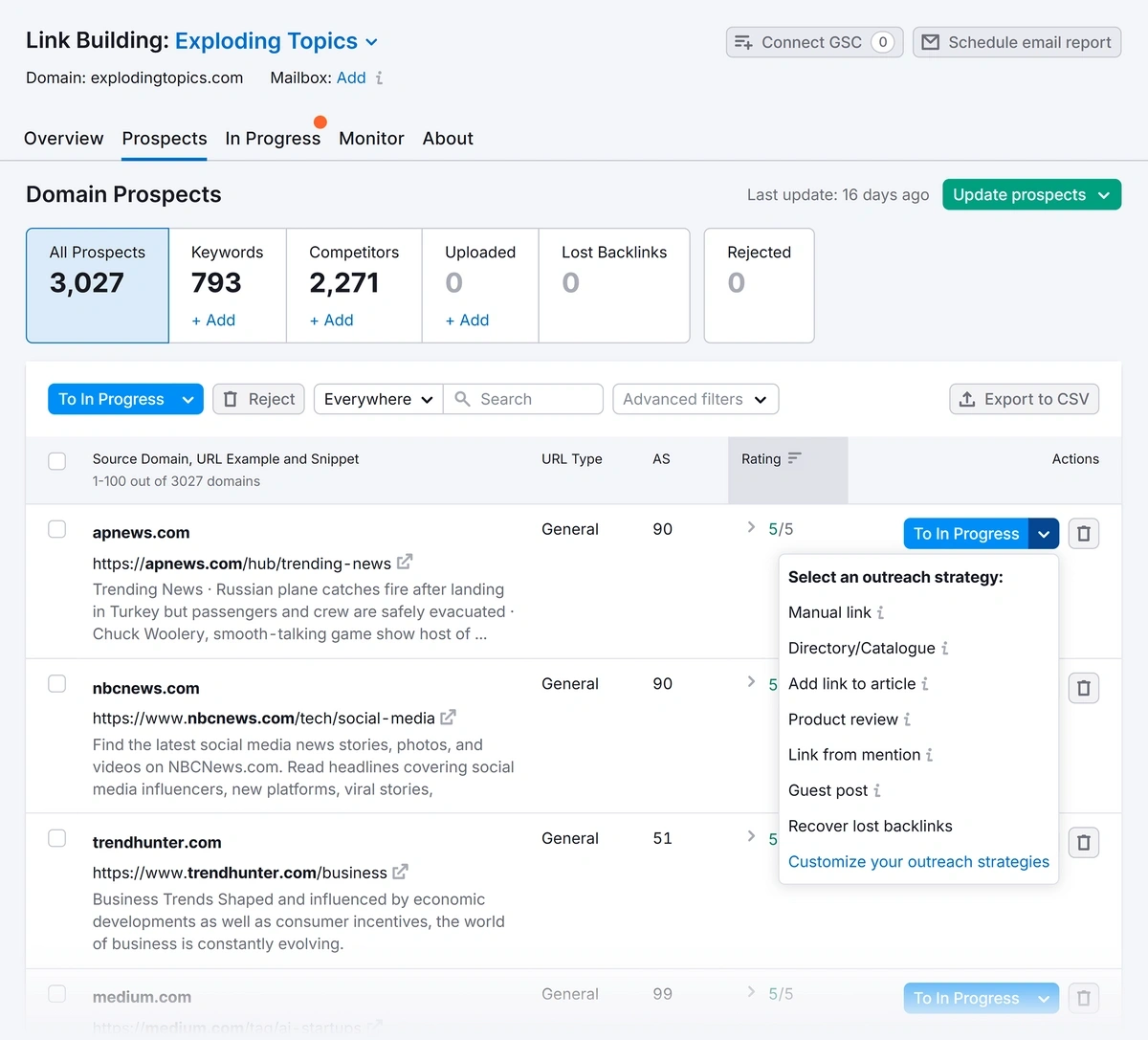Get Advanced Insights on Any Topic
Discover Trends 12+ Months Before Everyone Else
How We Find Trends Before They Take Off
Exploding Topics’ advanced algorithm monitors millions of unstructured data points to spot trends early on.

Keyword Research
Performance Tracking
Competitor Intelligence
Fix Your Site’s SEO Issues in 30 Seconds
Find technical issues blocking search visibility. Get prioritized, actionable fixes in seconds.
Powered by data from
Diib vs Semrush: Are These SEO Tools Equal in 2025?
Whether you want customers to find your local business on Google Maps or you’re trying to get your blog posts picked up by the AI Overview, you need a search engine optimization (SEO) tool.
Small business owners often hear a lot about two tools in particular: Diib and Semrush. But if you’re new to SEO, how are you supposed to know which one is the best fit?
This in-depth guide breaks it down.
What is Diib?
Diib is an SEO automation platform for small business owners who don’t have the time for (or aren’t interested in) building an SEO strategy.
(If you are interested, then we'd recommend our comprehensive SEO for small businesses guide.)
The company’s proprietary “Answer Engine” integrates with Google Analytics and analyzes your website. This process identifies potential issues that might be bringing down your organic traffic, including:
- Slow site speedssmaPoor mobile optimization
- Low domain authority
- Inaccessible sitemaps
- Expired SSL certificates
These reports are like a light site audit that compares your SEO performance to other websites in your industry.
What is Semrush?
Semrush is a full suite of SEO and digital marketing tools suitable for beginners and experts alike.
Like Diib, Semrush does offer daily recommendations and updates. But Semrush is different in that it doesn’t dictate everything you do related to SEO and digital marketing.
Instead, Semrush provides you with the tools you need to do things like:
- Find new competitors
- Choose high-value, low competition keywords
- Improve your site’s backlinks
- Look for potential website issues
- Track organic search rankings
- Run paid ad campaigns
- Correct local SEO citations
- Build a complete SEO content strategy
- Write optimized content with the help of AI
How do Diib and Semrush Compare?
| Tools For | Diib | Semrush |
| Automated Insights | ✅ | ✅ |
| Keyword Research | ✅ | ✅ |
| Position Tracking | ✅ | ✅ |
| PPC Advertising | 🚫 | ✅ |
| Competitive Analysis | ✅ | ✅ |
| Website Audits | ✅ | ✅ |
| Technical SEO | 🚫 | ✅ |
| Link Building | 🚫 | ✅ |
| Local SEO | 🚫 | ✅ |
| Content Marketing | 🚫 | ✅ |
| Social Media | ✅ | ✅ |
| Email Marketing | ✅ | 🚫 |
| Lead Generation | ✅ | 🚫 |
| Trend Spotting | 🚫 | ✅ |
| Trend Forecasting | 🚫 | ✅ |
Ease of Use
The Diib and Semrush dashboards both present users with actionable insights that can help to improve website performance.
After that, the two platforms’ user experience differs considerably. Semrush has a clean, user-friendly interface with a collapsing menu. Each tool name clearly indicates what its function is.
Diib relies heavily on icons, color coding, multiple menus, sidebars, and animated graphics. The names of different tools—like Handshake—aren’t directly related to function.
The Verdict: Semrush offers a more straightforward, clean user interface than Diib.
Automation
The biggest difference between Diib and Semrush’s approach to automation is that Diib defaults to automation first, while Semrush is largely driven by user intent.
Diib offers automated site audits, rank tracking, and more. Semrush allows you to automate audits, keyword rank tracking, and reports, but you don’t have to. It’s entirely possible to use each Semrush tool only as you need it.
Personally, I like to use a mix of automation and manual research in Semrush. I set up multiple position trackers for my client projects and schedule weekly site audits—but typically only generate reports as I need them.
The Verdict: Diib is useful if you want everything to be automated; Semrush is better if you prefer to use a mix of manual and automated SEO reporting in your work.
Want to Spy on Your Competition?
Explore competitors’ website traffic stats, discover growth points, and expand your market share.
Keyword Research Tools
Semrush offers more robust, useful keyword research tools than Diib.
The Diib Keyword Explorer is a basic research tool that shows you:
- Monthly search volume
- Keyword difficulty (competition) score
- Cost-per-click (CPC) for paid ads
- Related keywords
There’s no further customization you can do—nor can you create a position tracking report with the terms that you research.
You can conduct keyword research in Semrush using either the Keyword Overview or Keyword Magic tools.
The Keyword Overview tool lets you quickly assess key metrics for multiple keywords. Like Diib’s Keyword Explorer, the Semrush Keyword Overview shows you search intent, search volume, difficulty, and CPC.
The Keyword Magic Tool is useful when you want to find terms that are related to a given topic. You can use it to dig deep into the SERP and find related questions, queries with a specific search intent, and more.
You can also customize each tool’s results for a specific domain—Semrush will show you a personalized keyword difficulty score that makes the data even more relevant to your brand.
The Verdict: Diib only offers basic keyword metrics (that you can also find in Google Keyword Planner for free). Semrush gives you the full picture of a SERP, including domain-specific difficulty scores, so it’s better for serious SEO research.
Position Tracking
Diib’s automated report includes a rank tracking section. The list of tracked keywords gets automatically generated—you can’t add to it—and includes terms your site does or could rank for if you follow Diib’s recommendations.
You can use Diib to monitor your progression in the Google SERP, but it doesn’t show you any ranking information for other search engines or AI tools like ChatGPT.
Semrush position tracking is different in that it’s a fully customizable process. You can track any term for any website and see how it appears in the Google, Bing, and Baidu SERPs as well as in ChatGPT results.
You can use Semrush to track your rank, a client’s rank, or even a competitor’s rank for different keywords.
The Verdict: If you want to track your current rank and get a few keyword suggestions, Diib will suit your needs. But if you want to create lists and track specific terms that you find, you’ll need to use Semrush.
PPC Advertising
Diib doesn’t include a dedicated tool to help you optimize your Google Ads or other PPC campaigns. While you can see a CPC associated with each keyword shown in Keyword Explorer, there’s no way to see what ads your competitors are running or how accurate your own listings are.
Some Diib learning center articles include mention of a done-for-you Google Ads service, but its wasn’t listed as an available add-on in my Diib account.
If you’re serious about a PPC strategy, I recommend a more customizable tool like Semrush or Ahrefs.
I like the Semrush Advertising Toolkit because it shows me lots of data about my competitors’ PPC ads, including:
- Competitors’ total ad keywords
- Clicks on competing ads
- Ad performance across different platforms like Google and Meta
I can then use the Advertising Toolkit to improve my own ads by:
- Researching the best keywords to use
- Finding lower CPC options to target
- Creating and testing multiple ad versions with the help of AI
- Tracking my impressions, clicks, and total spend across ad networks
The Semrush Traffic and Market tool is useful, too. By entering my domain and those of my competitors, I can narrow in on website traffic, device, and topic trends associated with paid ads—and see how we compare.
I particularly like the “Top Sources” chart that shows me what ad networks are feeding the most traffic to my competitors.
The Verdict: Diib doesn’t offer much for PPC advertisers. You’ll be better served by Semrush or even basic Google Ads tools.
Competitor Analysis
Diib offers limited organic competitor analysis insights… and you have to know who your competitors are before you use the tool.
I’ll be honest, I was a little disappointed to find out that Diib didn’t provide me with a list of my SERP competitors.
When I’ve been working on projects, I’ve often noticed a company's main SERP competitors aren’t the same as their competitors in other channels.
So unless you’re really sure you know your main paid and organic SERP competition, you won’t get the most out of Diib’s tools.
It’s much easier to find SERP competitors (and learn about their strategies) when using Semrush. The Domain Overview tool lets me type in any URL and see a complete summary of:
- Top SERP competitors
- Competitors’ top keywords
- Competing site traffic
- The value of competitors’ traffic
- How many paid and organic keywords I have in common with a competitor
The Verdict: Diib can be useful if you already know who your SERP competitors are. If you need to find out which competitors you’re up against, you should use Semrush.
Link Building
You can use Diib for basic backlink analysis, but you can’t use the tool to actively grow your backlink profile—unless you want to pay for Diib’s support services.
Diib’s automatic scan of your website returns a basic list of links. You can see if the app identifies any as particularly spammy, but that’s it.
I’m not really surprised by this, as Diib is designed for folks who would like to be hands-off about their SEO. Actively getting new backlinks to your site can be a time intensive process.
If you don’t want to have to pay Diib or an agency to do your backlink work, though, you can actively improve your site’s link profile yourself with Semrush.
I’ll be honest—I’ve used a lot of SEO tools. I find Semrush’s backlink features to be far better than any others. You can:
- See what sites link back to yours
- Evaluate how valuable or spammy those links are
- Create lists of bad backlinks and request that Google disavow them
Semrush also has a unique feature called the Link Building Tool. It helps you find potential link opportunities and even reach out to website owners directly from your Semrush dashboard.
The Verdict: If you want someone else to handle your backlink strategy, Diib can be a good choice—if you pay for the right add-ons. But if you are comfortable building backlinks on your own (or want to learn how), Semrush makes it easy.
Want to Beat Your Competition?
Find out who’s linking to them and build a better backlink strategy.
Price
Both Diib and Semrush offer free tiers with limited features. You can use either tool to do a little keyword research and evaluate your online presence.
Diib Pro plans cost $99 per month. This tier unlocks more features, including a meeting with an SEO expert, help setting up your Google Analytics account, and access to more keywords and other metrics.
Semrush pricing plans vary based on your feature and usage needs:
- Pro for $117.33 per month billed annually
- Guru for $208.33 per month billed annually
- Business for $416.66 per month billed annually
As a Semrush user, you’ll also get a dedicated customer support point of contact who can help answer questions you have about the platform. The company also maintains an active YouTube page with tutorials and other useful information.
The Verdict: Semrush costs a bit more than Diib, but gives you access to a wide range of features that you can control.
Is Diib a Good Semrush Alternative in 2025?
Diib really isn’t a direct alternative for Semrush. The two tools offer different feature sets, and Diib doesn’t let you have as much control over your SEO as Semrush does.
But whether you choose to use Diib or Semrush, one thing is important: you need a way to understand what your audience is interested in now and in the future.
That’s where a tool like Exploding Topics comes in. By pairing Exploding Topics with your SEO tool of choice, you can see what your audience is interested in, where they’re talking about it online, and how their interest might change in the near future.
My recommendation? Try Exploding Topics for free—then add on an extended 14-day free Semrush trial, too, and see how these two powerful tools can help you improve your online visibility.
Stop Guessing, Start Growing 🚀
Use real-time topic data to create content that resonates and brings results.
Exploding Topics is owned by Semrush. Our mission is to provide accurate data and expert insights on emerging trends. Unless otherwise noted, this page’s content was written by either an employee or a paid contractor of Semrush Inc.
Share
Newsletter Signup
By clicking “Subscribe” you agree to Semrush Privacy Policy and consent to Semrush using your contact data for newsletter purposes
Written By


Emily is a freelance content writer at Exploding Topics. A former news correspondent, she has over 15 years' experience creati... Read more




